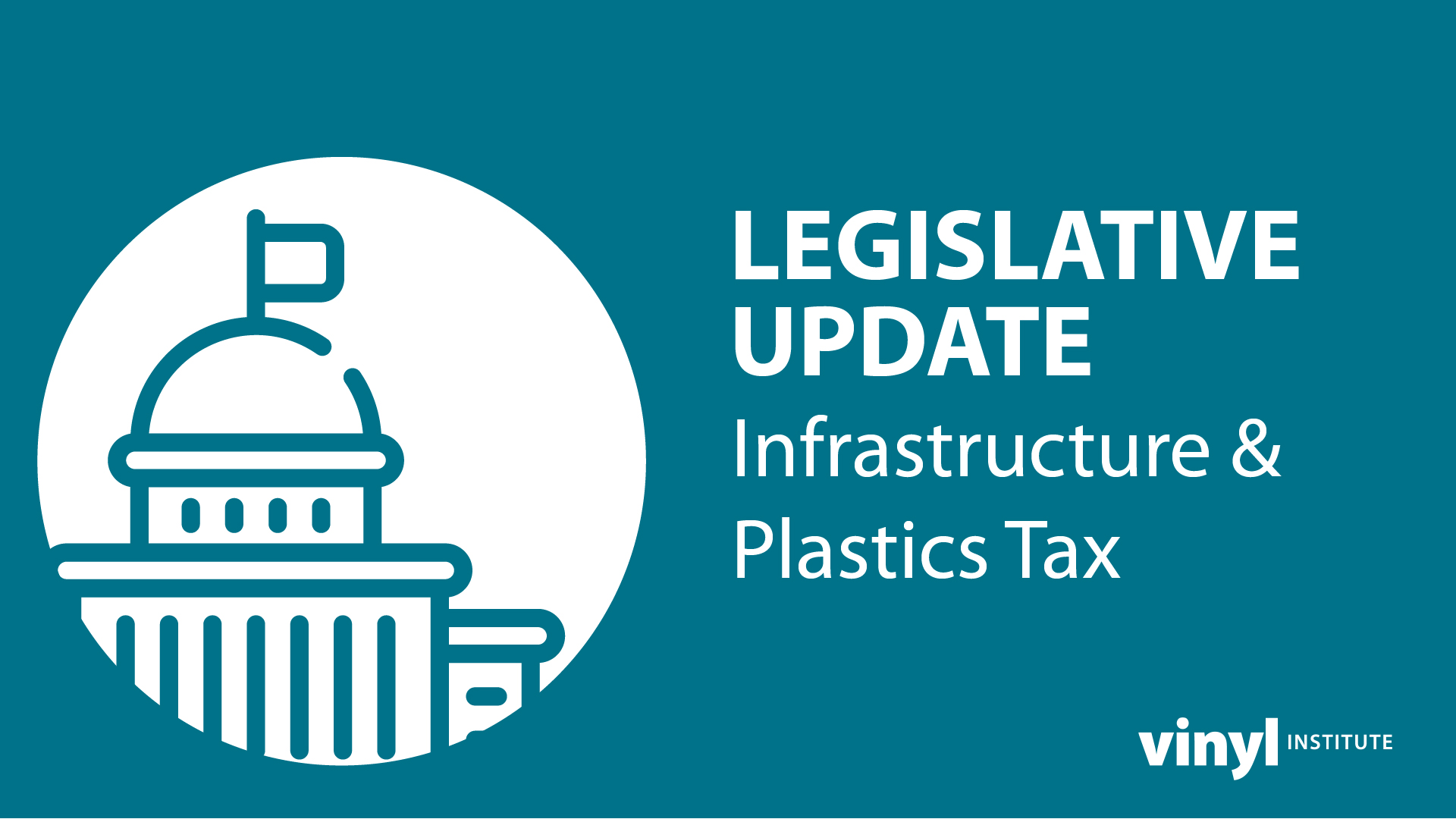This website uses cookies so that we can provide you with the best user experience possible. Cookie information is stored in your browser and performs functions such as recognising you when you return to our website and helping our team to understand which sections of the website you find most interesting and useful.
News
Legislative Update: Infrastructure & Plastics Tax
Infrastructure
After little progress over the past month, a group of 21 bipartisan senators announced Wednesday evening that they agreed with the White House on a tentative framework for a roughly $1.2 trillion infrastructure package with $579 billion in new spending. The group will be meeting Thursday with President Joe Biden to discuss the package in person further, as there are a few more details to work out.
The senators did not provide details on the agreement but are expected to do so on Thursday. Sen. Rob Portman (D-OH) said there was a “good balanced group of pay-fors,” while Sen. Joe Manchin (D-WV) noted that the plan does not include indexing the gas tax, which was a non-starter for the White House because the saw it as a regressive tax increase. The negotiators still have to discuss the agreement with their caucuses which may lead to several challenges, especially from progressives concerned that their ambitious climate change goals will be left behind and they will need to rely on reconciliation as their vehicle for more progressive proposals. House Speaker Nancy Pelosi (D-CA) and Senate Majority Leader Charles Schumer (D-NY) welcomed the agreement but warned that the deal would have to move in tandem with a larger budget reconciliation bill to get Democrats’ support. Schumer said both chambers would vote in July on a budget resolution containing reconciliation instructions.
Pelosi said she still plans to vote the week of June 28 on a 5-year, $547 billion highway bill (H.R. 3684) and the wastewater and drinking water bills (H.R. 1926, H.R. 3291) with plans to combine them into the bipartisan bill if agreement moves forward.
Water Infrastructure
Congress continues to focus on improving America’s water quality and infrastructure. On June 23, the full U.S. House Energy and Commerce Committee reported three water-related bills to assist low-income communities with affordable and safe drinking water. H.R. 3291 was reported favorably (32-24) and would authorize $100 billion over 10 years for the nations drinking water systems. The bill would extend the Drinking Water State Revolving Fund (DWSR) authorization and increase it to $52.94 billion over 10 years through FY 2031. In addition, the legislation amends the Safe Drinking Water Act and would authorize $45 billion through FY2031 to replace lead service lines. The bill’s funding is more in line with President Biden’s infrastructure proposals compared to the Senate version (S. 914), which would authorize $14.7 billion through FY2026 for the Drinking Water State Revolving (DWSRF) Fund and another $14.7 billion through FY 2026 for the separate Clean Water State Revolving Fund (CWSRF).
Plastic Tax
The U.S. House Natural Resources Committee held a June 22 hearing on more than a dozen bills concentrated on U.S. oceans and coastlines, including a bill that will create a new tax on plastic manufacturers. Chairman Raúl Grijalva’s (D-AZ) Ocean-Based Climate Solutions Act of 2021 (H.R. 3764) would place a 5-cent-per-pound excise tax on virgin plastic used in the manufacture of single-use products while making exemptions for medical and personal hygiene products. The money collected would be placed in a Virgin Plastic Trust Fund, half of which would go to the U.S. general fund and half to funding climate change activities. The legislation also directs the administration to negotiate international agreements to reduce virgin plastic production, specifically reducing global single-use plastic production from virgin polymers to 10% of 2010 levels by 2050.
Staff for Sen. Sheldon Whitehouse (D-RI), co-chair of the U.S. Senate Oceans Caucus, say he plans to introduce a virgin plastics tax proposal of his own. In a June 22 tweet, Whitehouse said, “Stand by. One is on the way,” while linking to a Washington Post op-ed advocating a virgin plastics tax.
Grijalva, who added the plastic fee as a new provision in reintroduced legislation from last Congress, is essentially zeroing in on one product to provide funding for a host of unrelated policies. The legislation fails to examine the important and innovative role that plastics have in limiting greenhouse gases and combating climate change or address the broader waste and recycling issue. Furthermore, the legislation lacks any details on how the administration is expected to achieve the global single-use plastic production goals. The VI remains committed to working to shape meaningful legislation that helps solve the difficult climate change and waste management issues the U.S. and other countries face.
Nominations
The Senate confirmed (55-43) Radhika Fox to be the Assistant Environmental Protection Agency (EPA) Administrator for Water on June 16. Senate Environment and Public Works Committee Chairman Tom Carper (D-DE) welcomed Fox’s confirmation. At the same time, Ranking Member Shelley Moore Capito (R-WV) voted against Fox partly due to her inability to commit to maintaining the Trump-era version of the Navigable Waters Protection Rule during questioning. Seven Republicans joined Democrats voting in favor of Fox’s nomination.


